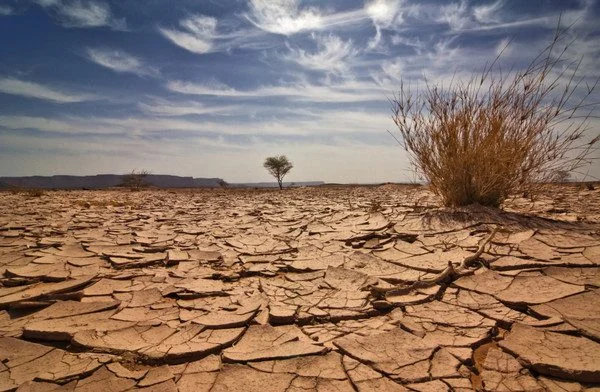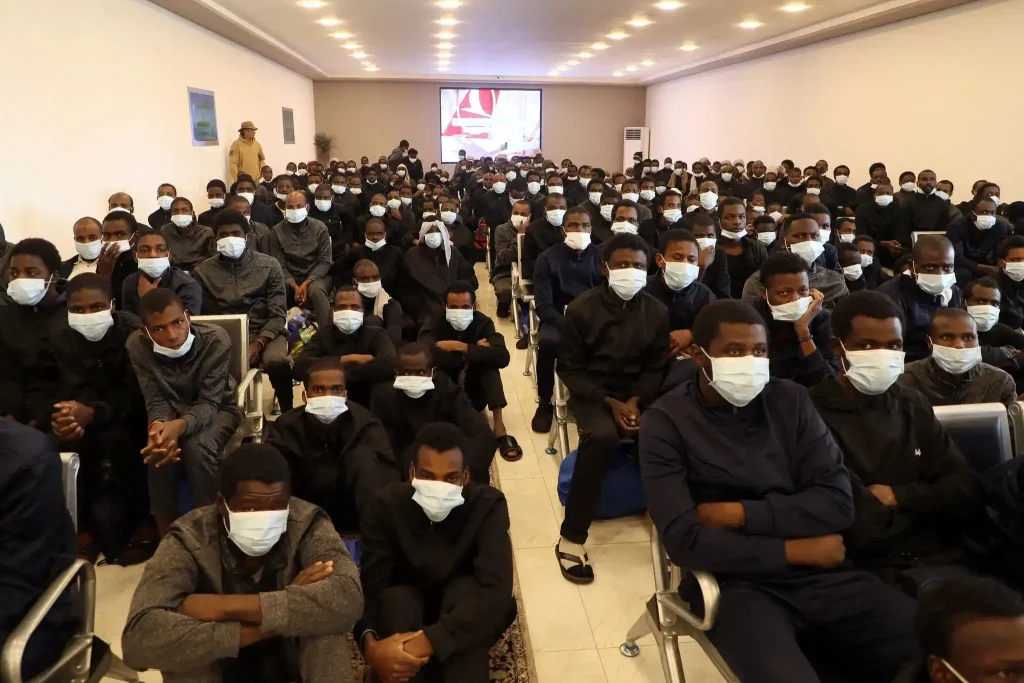Climate change is one of the most pressing global challenges of our time, with its impacts felt across continents. However, Africa is particularly vulnerable to the effects of climate change due to its geographical location, economic challenges, and heavy reliance on agriculture. The continent is experiencing more extreme weather events, changing rainfall patterns, and rising temperatures, which are threatening food security, livelihoods, and overall economic stability.
This article delves into how climate change is affecting Africa, exploring its impact on key sectors such as agriculture, water resources, health, and biodiversity. We also examine the efforts being made to mitigate these challenges and the importance of global action in addressing the continent’s unique vulnerabilities.
1. Extreme Weather Events and Disasters
One of the most visible effects of climate change in Africa is the increasing frequency and intensity of extreme weather events such as droughts, floods, heatwaves, and cyclones. These events have devastating consequences for communities, economies, and ecosystems.
- Droughts: Africa is experiencing prolonged and more severe droughts, particularly in regions like the Horn of Africa and the Sahel. These droughts lead to water shortages, crop failures, and loss of livestock, exacerbating food insecurity and malnutrition.
- Flooding: In contrast, some parts of the continent are facing more frequent and intense flooding. Countries like Mozambique and Nigeria have witnessed devastating floods that destroy homes, displace people, and damage critical infrastructure.
- Cyclones: Coastal areas in southern Africa, particularly Mozambique, have been hit by stronger cyclones due to rising sea surface temperatures. Cyclone Idai in 2019, for example, caused widespread destruction, leaving millions in need of humanitarian assistance.
These extreme weather events are not only causing significant loss of life and property but also hindering economic growth, deepening poverty, and reversing development gains.
2. Impact on Agriculture and Food Security
Agriculture is the backbone of many African economies, with a large percentage of the population dependent on farming for their livelihoods. However, climate change is severely affecting agricultural productivity, posing a significant threat to food security across the continent.
- Changing Rainfall Patterns: In many African countries, the rainy seasons have become shorter and less predictable. This irregular rainfall is disrupting planting and harvesting cycles, leading to reduced crop yields. Staple crops like maize, sorghum, and millet are particularly vulnerable.
- Desertification: The expansion of deserts, particularly in the Sahel region, is reducing the availability of arable land. This is forcing farmers to abandon traditional agricultural practices and contributing to the displacement of communities.
- Pests and Diseases: Warmer temperatures and changing weather patterns are also contributing to the spread of agricultural pests and diseases. For example, the fall armyworm has devastated maize crops across sub-Saharan Africa, further straining food supplies.
As a result of these challenges, millions of people across the continent face chronic hunger and malnutrition, particularly in vulnerable communities where access to food is already limited.
3. Water Scarcity and Resource Conflicts
Climate change is exacerbating water scarcity in many parts of Africa, particularly in regions that are already water-stressed. Rising temperatures and changing precipitation patterns are reducing the availability of freshwater for drinking, irrigation, and industry.
- Drying Rivers and Lakes: Major water bodies like Lake Chad and the Niger River are shrinking, affecting the livelihoods of millions who depend on them for fishing, farming, and drinking water. The reduction in water levels is also disrupting ecosystems and threatening biodiversity.
- Increased Competition for Water Resources: As water becomes scarcer, competition over these resources is intensifying, leading to conflicts between communities and even countries. In the Horn of Africa, tensions between Ethiopia, Egypt, and Sudan over the Grand Ethiopian Renaissance Dam (GERD) highlight how climate change can fuel geopolitical disputes over shared water resources.
Water scarcity is not only affecting agriculture and industry but also contributing to forced migration and the displacement of people, as communities leave their homes in search of water and food.
4. Impact on Human Health
Climate change is having a direct impact on public health in Africa, with rising temperatures, extreme weather events, and environmental degradation leading to the spread of diseases and other health challenges.
- Vector-Borne Diseases: Warmer temperatures are expanding the habitats of disease-carrying vectors like mosquitoes, leading to an increase in diseases such as malaria, dengue fever, and cholera. Regions that were previously malaria-free are now reporting cases as the disease spreads to higher altitudes and new areas.
- Heat-Related Illnesses: As temperatures rise, heatwaves are becoming more common, particularly in North Africa. Prolonged exposure to extreme heat can lead to heat-related illnesses such as heatstroke, which is particularly dangerous for vulnerable populations like the elderly and those with pre-existing health conditions.
- Malnutrition: The impact of climate change on food security is also contributing to higher rates of malnutrition, particularly among children. Malnutrition weakens the immune system, making individuals more susceptible to diseases.
These health impacts place a significant strain on already overburdened healthcare systems in many African countries, further complicating efforts to achieve universal health coverage.
5. Threats to Biodiversity and Ecosystems
Africa is home to some of the world’s most diverse ecosystems and wildlife, but climate change is threatening the biodiversity that many communities depend on for tourism, food, and cultural practices.
- Habitat Loss: Changing weather patterns and the destruction of natural habitats due to human activity are endangering species such as elephants, rhinos, and lions. In countries like Kenya and Tanzania, wildlife migration patterns are being disrupted by droughts and habitat destruction, affecting conservation efforts and tourism.
- Coral Reef Degradation: Rising sea temperatures are causing coral bleaching in marine ecosystems off the coasts of countries like Madagascar and Mozambique. This not only threatens marine biodiversity but also the livelihoods of coastal communities that rely on fishing and tourism.
- Deforestation: Africa’s rainforests, particularly in the Congo Basin, are under threat from deforestation driven by agriculture, logging, and mining. The loss of these forests, which are critical for regulating the global climate, contributes to increased greenhouse gas emissions and the loss of biodiversity.
The degradation of ecosystems has far-reaching consequences for local economies, food security, and cultural heritage, making the protection of Africa’s natural environment more important than ever.
Efforts to Combat Climate Change in Africa
Despite the immense challenges posed by climate change, African countries are taking significant steps to address its impacts and build resilience.
- Renewable Energy: Many African nations are investing in renewable energy sources such as solar, wind, and hydropower to reduce their reliance on fossil fuels and curb greenhouse gas emissions. Countries like Morocco, South Africa, and Kenya are leading the way in renewable energy projects that also provide sustainable power to underserved communities.
- Climate Adaptation Initiatives: Governments, NGOs, and international organizations are implementing climate adaptation programs to help communities build resilience to climate change. These include initiatives aimed at improving water management, promoting climate-smart agriculture, and restoring degraded ecosystems.
- Global Climate Agreements: African countries are actively participating in global climate negotiations, including the Paris Agreement, to advocate for greater support from the international community in terms of climate finance, technology transfer, and capacity building.
Despite these efforts, Africa requires increased global support to address the scale of the challenges posed by climate change. The continent contributes less than 4% of global greenhouse gas emissions but bears the brunt of its impacts, highlighting the need for climate justice and equitable solutions.
Conclusion: The Path Forward
The effects of climate change on Africa are undeniable and multifaceted, affecting everything from agriculture and water resources to human health and biodiversity. As the continent grapples with these challenges, the need for both mitigation and adaptation measures has never been more urgent.
By investing in renewable energy, promoting sustainable development, and strengthening international cooperation, Africa can build a more resilient future in the face of climate change. Global action, combined with local efforts, will be key to ensuring that the continent not only survives the impacts of climate change but thrives in the long term.























